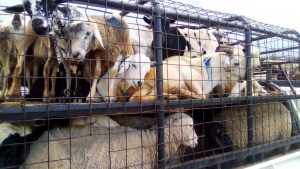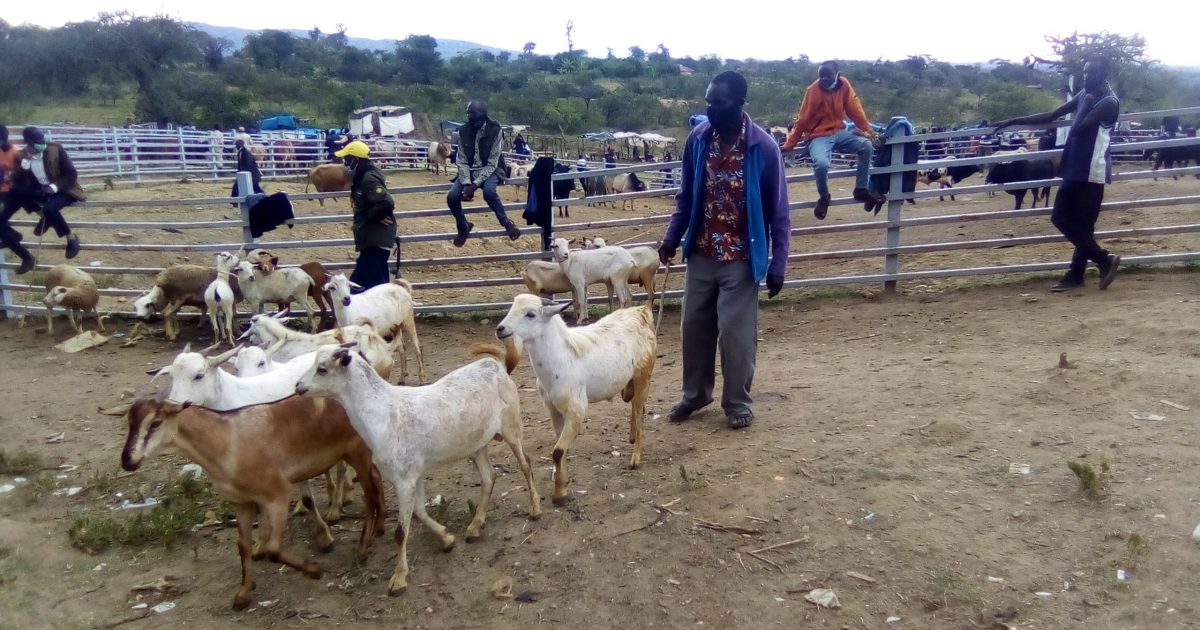Livestock trading at Chepareria market in West Pokot county remained low with usual key players attributing it to the fear of Covid-19.
The traders who consider the month of November as the peak season said since the pandemic was announced in the country, they have been recording very low sales at the ever busy livestock market.
Speaking to KNA at the market, both the traders and buyers lamented over the poor market for sheep, goats and cattle.
A trader John Loribo said this year they have experienced very low business with prices having gone down unlike other years where a 100kg cattle would go for Sh.60,000 but for now it has sunk to as low as Sh.30,000.
“At this time of the year I used to make a profit of around Sh2, 000 every market day but for now I barely make more than Sh.500,” lamented Loribo.
He said that despite approaching the festive season, indications on the ground paint a pessimistic future since there is still a very low turnout of buyers from outside the county.
He said he is still having last year’s stock since the prices have been poor and he cannot dispose of for fear of making a big loss.
“We used to have buyers from Nairobi, Bungoma, Trans Nzoia and other far off regions but it seems they have kept off. Farmers seem to give up since they bring their livestock to the market but fail to get their target prices because there are few buyers,” noted Loribo.
Samuel Lokudia who is both a farmer and a trader said the prices are low as compared to other years forcing him and other farmers to reduce their business activities.
He said buyers have shied away because of Covid-19 fear with the few getting to the market complaining that the prices might be higher according to the type of livestock being brought to the market by farmers.
“Goats are not selling like before. Farmers are being forced to go back with their livestock and since there is enough pasture occasioned by the extended rainy season, there is nothing to bother,” said the trader.
He stated that as a farmer, he opts to continue stocking awaiting better tidings when schools fully reopen in January.
He appealed to both the national and county government to come up with strategies of sustaining the business to cushion those who have been surviving on the business.

“I call upon my fellow traders and farmers not to despair since we are hopeful the pandemic shall come to an end at one time. God has blessed us with enough pasture owing to the rains that have been experienced this year,” he stated advising farmers from the region not to dispose of their stocks at throw away prices.
A buyer from Turbo in Nandi County Simon Ng’etich expressed concerns over the increased prices of sheep saying he had been forced to visit the market because where he comes from farmers are not selling their livestock and if any they are charging so exorbitantly.
Ng’etich observed that many farmers are not selling their livestock since they are limited expenses arising from the close of schools.
He said many farmers used to sell their livestock in order to pay school fees but because not many children are back to schools, they opt to remain with their stocks.
“I opted for this place to buy sheep for my butchery business but I am discouraged since whatever prices I expected is above board. The quality of sheep on the market is also not appealing. If you say you adjust the price of meat many customers will shy away due to the hard economic times,” he said.
He explained that the meat business may not be promising since many customers may end up slaughtering their own stocks during the festive season.
“I normally buy on wholesale but you will realize that at the moment traders are lumping up a mixture of sheep sizes at a high price. This doesn’t go down very well for my business,” he said.
By Richard Muhambe





